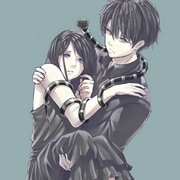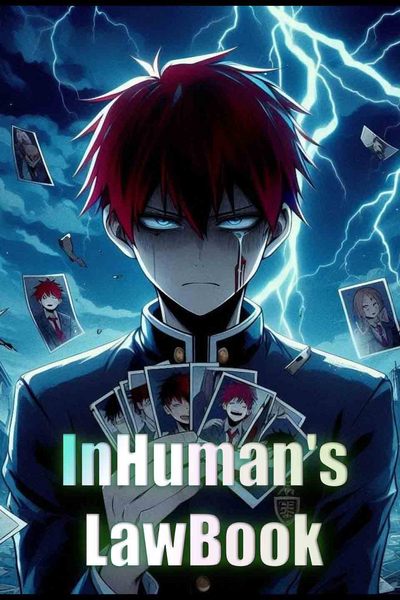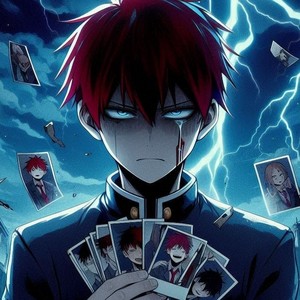After class, Arakawa wandered through the school grounds, silently observing the vast campus. The sky was bright, but dark clouds loomed in the distance, hinting at an impending storm. The day unfolded uneventfully, the hours slipping by like water through fingers.
By nightfall, Arakawa found himself back in his room. The dorms of Erito High were towering structures, twenty floors tall, housing students and staff. Arakawa’s room was on the 19th floor, offering a sweeping view of the island.
After a quick shower, he changed into casual clothes and stepped onto the balcony. The night sky was mesmerizing—dark and endless, painted with hues of white and purple. A full moon illuminated the campus below.
Arakawa pulled out his phone and opened Fabbook. The first post that appeared sent a chill through the otherwise serene night:
"Suspect acquitted in rape case due to lack of evidence."
The details followed.
The suspect, Kurogane, a 38-year-old working at a low-paying medicine office, had been accused of assaulting a 16-year-old schoolgirl six days prior. The incident allegedly occurred under a bridge late at night. When her parents noticed she hadn’t returned home, they searched frantically, finding only her scattered clothes under the bridge. The girl had later identified Kurogane, but the court ruled in his favor due to insufficient evidence.
The post didn’t reveal the girl’s identity, but Arakawa knew who she was—a junior from his previous school. Her name lingered in his memory, but no emotion accompanied it.
Rage? Sympathy? Sadness? None of these surfaced. Arakawa felt nothing.
For most, such news would ignite anger or pity, a call to action to seek justice. But Arakawa wasn’t like most. He wasn’t the heroic protagonist of a typical story. He was something far darker.
The emotions that drive people to outrage—helplessness against society’s rules or the ideals of justice—were alien to him. To Arakawa, morality was a fragile construct, a delusion to comfort the weak.
Looking down at the street, he noticed a stray dog and a cat locked in a fierce fight. As their silhouettes clashed under the moonlight, his mind drifted.
"Right and wrong are illusions. Everyone justifies their actions from their perspective. The rapist might say his loneliness drove him. The victim cries for justice. But in the end, none of that matters. The only truth is strength. The strong dictate reality; the weak submit to it."
His thoughts wandered to his past.
"When I was seven, my parents had a fight. They threw things—furniture, plates, whatever was within reach. And then...a knife. It struck my baby sister, killing her instantly. After that, they pretended she never existed. They divorced, leaving me in a dorm, funding my life but never visiting. It was as if I didn’t exist either."
His only solace came from his grandfather, who visited occasionally. His words stayed etched in Arakawa’s mind:
"Right and wrong are constructs of the weak. Do what you must, and never look back."
Those words had defined him ever since.
Below, the dog managed to sink its teeth into the cat’s leg, but the cat retaliated, blinding the dog with its claws. The injured canine yelped and fled.
Arakawa’s lips curled into a faint, humorless smile.
"The world is simple. What’s precious to me, I’ll protect. What’s irritating, I’ll destroy. That’s all there is to it."
He turned back into his room, letting the balcony door click shut behind him. His modest room had all the essentials: a double bed, a study table, a kitchenette, and a bathroom. It wasn’t luxurious, but it was enough.
As he lay down to sleep, the moonlight cast long shadows across the room.
The Next Morning
News broke across Fabbook, and the details were grisly.
Kurogane had been found dead. His body was mutilated beyond recognition—a scene so grotesque it could nauseate even the most hardened. His genitalia had been shoved into his mouth. His hands were stuffed into his rear, his eyes replaced by his severed testicles, and his brain lay splattered on the ground, being pecked at by ravens and stray dogs.
It was a scene from a nightmare, a testament to humanity's boundless capacity for evil.
And yet, to Arakawa, it was simply another page in the story of a broken world.
"Humans," he thought, "are the cruelest of all creatures. The only reason they pretend to be good is to maintain society’s facade. Deep down, they’re no better than beasts. If they were gone, the world would finally find peace."
As he prepared for the day, his face betrayed no emotion. To the world, he was just another student. But inside, he was a demon, unbound by the chains of morality, carving his own path in a world of chaos.










Comments (0)
See all